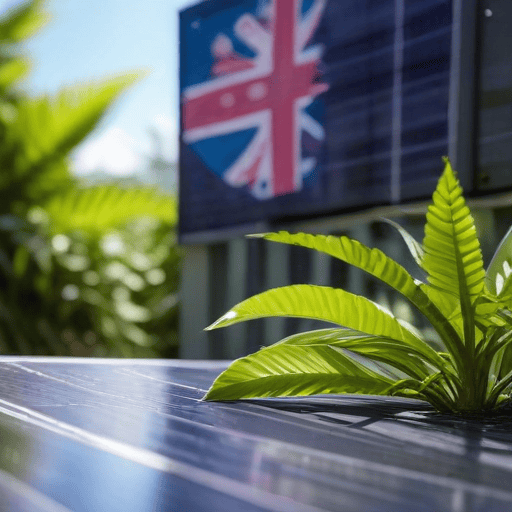Fiji has entered an exciting new chapter in its renewable energy journey, thanks to a partnership between India and the International Solar Alliance (ISA). This agreement aims to implement solar projects not only in Fiji but also in three African nations: Comoros, Madagascar, and Seychelles. With a funding commitment of $2 million (approximately $4.6 million), India is stepping up its support as part of the Quad Climate Working Group’s initiatives to combat climate change in the Indo-Pacific region.
Two significant solar projects have been proposed for Fiji. The first is a Solar Rooftop Panels initiative, specifically designed for healthcare facilities. Valued at around $261,900 (approximately $607,000), this project promises to enhance the operational effectiveness of medical services by ensuring reliable and sustainable energy while reducing reliance on conventional power sources. The second project, the Solar Cold Storage initiative, which has an investment of $277,500 (around $643,000), aims to develop essential cold chain infrastructure. This will not only help preserve perishable goods but also life-saving medicines, significantly contributing to food security and healthcare quality in Fiji.
This collaborative effort signifies a robust step toward strengthening Fiji’s renewable energy capacity and supports the nation’s transition to more sustainable energy systems. It addresses the unique challenges faced by small island developing states (SIDS), such as vulnerability to climate change and energy insecurity.
Moreover, the ISA, as a global inter-governmental organization, advocates for the adoption of solar power to achieve a carbon-neutral future. With 120 member nations, including Fijian allies like Kiribati, Tonga, and Tuvalu, the ISA aims to propel solar technology projects and tailored capacity-building programs to meet the needs of vulnerable nations.
India’s commitment to fostering strategic partnerships underscores the importance of clean energy solutions that empower member countries like Fiji to combat both energy and climate challenges. As these projects roll out, they stand to not only enhance community resilience but also improve the quality of life for residents, paving the way for a more sustainable future.
In summary, this initiative marks a promising move toward clean energy solutions in the Indo-Pacific, reaffirming the global commitment to sustainability in the face of pressing climate challenges.

Leave a comment